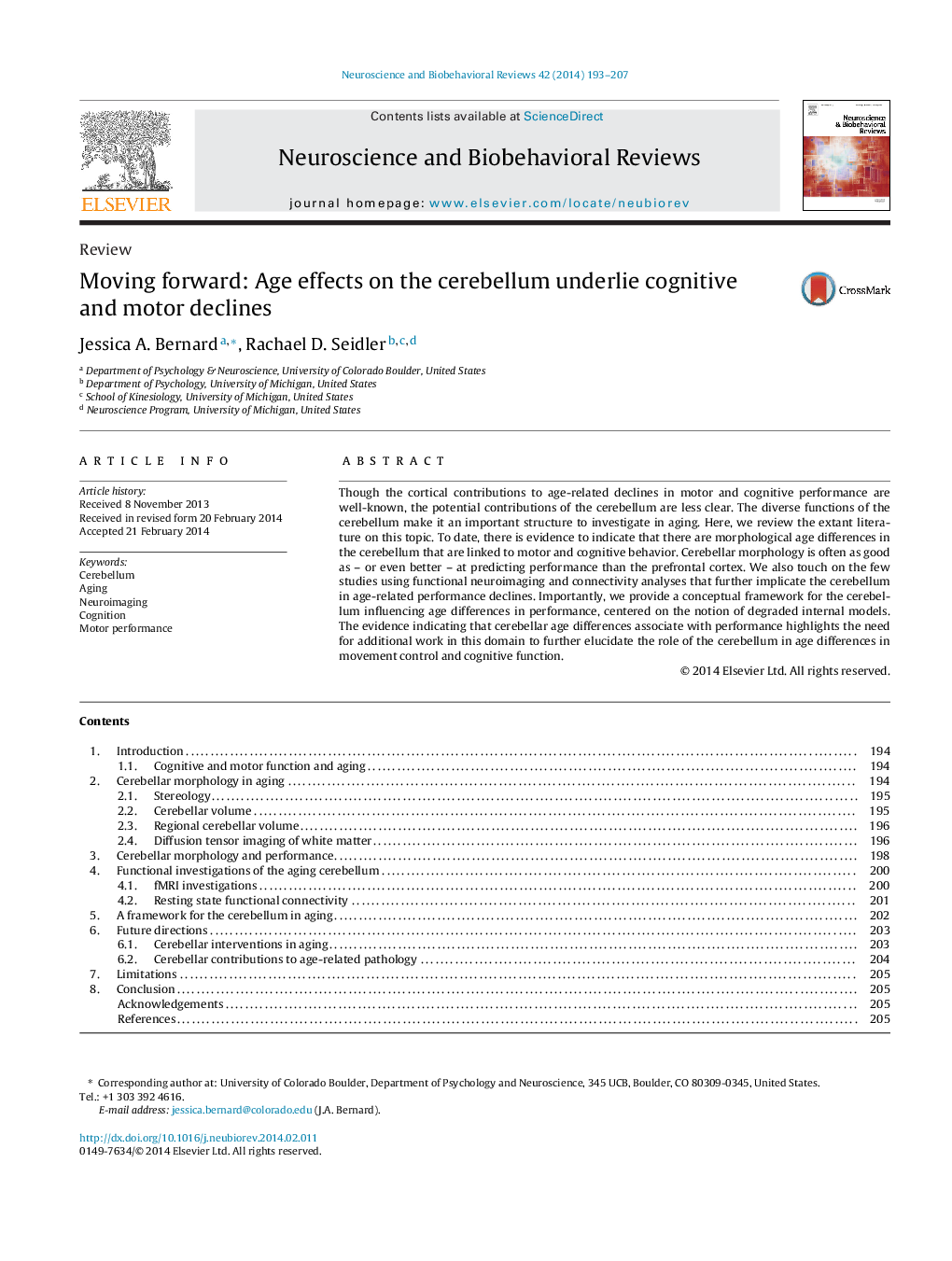| Article ID | Journal | Published Year | Pages | File Type |
|---|---|---|---|---|
| 7304104 | Neuroscience & Biobehavioral Reviews | 2014 | 15 Pages |
Abstract
Though the cortical contributions to age-related declines in motor and cognitive performance are well-known, the potential contributions of the cerebellum are less clear. The diverse functions of the cerebellum make it an important structure to investigate in aging. Here, we review the extant literature on this topic. To date, there is evidence to indicate that there are morphological age differences in the cerebellum that are linked to motor and cognitive behavior. Cerebellar morphology is often as good as - or even better - at predicting performance than the prefrontal cortex. We also touch on the few studies using functional neuroimaging and connectivity analyses that further implicate the cerebellum in age-related performance declines. Importantly, we provide a conceptual framework for the cerebellum influencing age differences in performance, centered on the notion of degraded internal models. The evidence indicating that cerebellar age differences associate with performance highlights the need for additional work in this domain to further elucidate the role of the cerebellum in age differences in movement control and cognitive function.
Related Topics
Life Sciences
Neuroscience
Behavioral Neuroscience
Authors
Jessica A. Bernard, Rachael D. Seidler,
